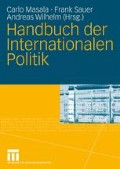Zusammenfassung
Eines der Grundmerkmale wissenschaftlichen Arbeitens besteht darin, Informationen so zu verdichten, dass eine Struktur erkennbar ist. Ohne Theorien über den Prozess, in dem die Daten entstanden sind, bleibt jeder Forscher blind. Doch mit Theorien allein ist es in den angewandten Wissenschaften nicht getan. Ob die Erklärung zu den Daten passt, lässt sich nur mit Hilfe von Methoden prüfen, die zugleich transparent und unabhängig von der Theorie sind, die es zu überprüfen gilt. Wenn eine theoriegeleitete Wissenschaftlerin ungeeignete Methoden verwendet, um die Datenstruktur zu beschreiben, kann sie zwei Probleme erfahren: das Fata Morgana- und das Vernebelungsproblem. Die erste Schwierigkeit besteht darin, dass die Methode den Effekt einer Ursache so überschätzt, dass der Forscher sich in falscher Sicherheit wiegt. Die zweite Folge ungeeigneter Methoden ist umgekehrt, dass die Wirkungen systematisch unterschätzt werden. Die Methodenwahl ist deshalb mitentscheidend, um schlechte und gute Forschung, wahre und falsche Erkenntnisse unterscheiden zu können. Generell gibt es zwei Kriterien, um die Angemessenheit einer jeden Methode zu beurteilen, unabhängig davon, ob das Verfahren „quantitativer“ oder „qualitativer“ Natur ist. So sollte ein geschätzter Zusammenhang („der Schätzer“) zum einen unverzerrt sein, was sich auch als Erwartungstreue oder Absenz eines Bias bezeichnen lässt. Zum anderen sollten die Resultate, die ein Verfahren bei Replikationen erbringt, eine geringe Varianz aufweisen und somit „effizient“ sein (King/Keohane/Verba 1994).
Access this chapter
Tax calculation will be finalised at checkout
Purchases are for personal use only
Preview
Unable to display preview. Download preview PDF.
Literatur
Achen, Christopher H. 1987: The Statistical Analysis of Quasi-Experiments, Berkeley, CA.
Achen, Christopher H./Snidal, Duncan 1989: Rational Deterrence Theory and Comparative Case Studies, in: World Politics 41, 144–169.
Achen, Christopher H. 2002: Toward a New Political Methodology: Microfoundations and ART, in: Annual Review of Political Science 5: 1, 423–450.
Bechtel, Michael/Schneider, Gerald 2010: Eliciting Substance from ‚HotAir‘ Financial Market Responses to EU Summit Decicions on European Defense, in: International Organization 64: 2 (im Erscheinen).
Beck, Nathaniel/King, Gary/Zeng, Langche 2000: Improving Quantitative Studies of International Conflict: A Conjecture, in: American Political Science Review 94: 1, 21–36
Beck, Nathaniel 2001: Time-Series Cross-Section Data: What Have We Learned in the Past Few Years?, in: Annual Review of Political Science 4: 1, 271–293.
Beck, Nathaniel/Katz, Jonathan 2001: Throwing Out the Baby with the Bath Water: A Comment on Green, Kim, and Yoon, in: International Organization 55: 2, 487–498.
Beck, Nathaniel/King Gary/Zeng, Langche 2004: Theory and Evidence in International Conflict: A Response to de Marchi, Gelpi, and Grynaviski, in: American Political Science Review 98: 2, 379–389.
Bennett, D. Scott/Stam, Allan C. 2003: The Behavioral Origins of War, Ann Arbor, MI.
Bueno de Mesquita, Bruce/Gleditsch, Nils/Petter, James Patrick/King, Gary/ Metelits, Claire/ Ray, James Lee/Russett, Bruce/ Strand, Håvard/, Brandon; Valeriano 2003: Symposium on Replication in International Studies Research, in: International Studies Perspectives 4: 1, 72–107.
Box-Steffensmeier, Janet M./Jones, Bradford S. 2004: Event History Modeling. A Guide for Social Scientists, Cambridge.
Braumoeller, Bear F. 2003: Causal Complexity and the Study of Politics, in: Political Analysis 11: 3, 209–233.
Fearon, James 1994: Signalling versus the Balance of Power and Interests: an Empirical Test of a Crisis Bargaining Model, in: Journal of Conflict Resolution 38: 2, 236–269.
Gill, Jett 2004: Special Issue on Bayesian Methods, in: Political Analysis 12: 4, 323–443.
Hoff, Peter D./Ward, Michael D. 2004: Modeling Dependencies in International Relations Networks, in: Political Analysis 12: 2, 160–175.
King, Gary 1989: Unifying Political Methodology: the Likelihood Theory of Statistical Inference. Cambridge.
King, Gary/Keohane, Robert O./Verba, Sidney 1994: Designing Social Inquiry: Scientific Inference in Qualitative Research, Princeton, NJ.
King, Gary/Langche, Zeng 2001: Explaining Rare Events in International Relations, in: International Organization 55: 3, 693–715.
Leblang, David/Mukherjee, Bumba 2004: Presidential Elections and the Stock Market: Comparing Markov- switching and Fractionally Integrated GARCH Models of Volatility, in: Political Analysis 12: 3, 296–322.
Lewis, Jeffrey B./Schultz, Kenneth A. 2003: Revealing Preferences: Empirical Estimation of a Crisis Bargaining Game with Incomplete Information, in: Political Analysis 11: 4, 345–367.
Lieberson, Stanley 1991: Small Ns and Big Conclusions: An Examination of the Reasoning in Comparative Studies Based on a Small Number of Cases, in: Social Forces 70, 307–320.
Morton, Rebecca 1999: Methods and Models: a Guide to the Empirical Analysis of Formal Models in Political Science, Cambridge.
Russett, Bruce M./Oneal, John R. 2001: Triangulating Peace: Democracy, Interdependence, and International Organizations, New York, NY.
Nooruddin, Irfan 2002: Modeling Selection Bias in Studies of Sanctions Efficacy, in: International Interactions 28: 1, 59–75.
Schneider, Gerald/Finke, Daniel/Bailer, Stefanie 2009: Bargaining Power in the European Union: An Evaluation of Competing Game-Theoretic Models, in: Political Studies (im Erscheinen).
Schneider, Gerald/Tröger, Vera 2004: The Winners and Losers of War: Stock Market Effects of Armed Conflict, 1990–2000 (Working Paper des Juan March Institute), Madrid.
Schneider, Gerald/Troeger, Vera 2006: War and the World Economy: Stock Market Reactions to International Conflicts, in: Journal of Conflict Resolution 50: 5, 623–645.
Signorino, Curtis S. 1999: Strategic Interaction and the Statistical Analysis of International Conflict, in: American Political Science Review 93: 2, 279–297.
Signorino, Curtis S. 2003: Structure and Uncertainty in Discrete Choice Models, in: Political Analysis 11: 4, 316–344.
Singer, J. David/Bremer, Stuart/Stuckey, John 1972: Capability Distribution, Uncertainty, and Major Power War, 1820–1965, in: Russett, Bruce (Hrsg.): Peace, War, and Numbers, 1. Auflage, London, 19–48.
Thomson, Robert/Frans N. Stokman/Christopher H. Achen/Thomas König 2006: The European Union Decides, Cambridge.
Western, Bruce 1998: Causal Heterogenity in Comparative Research: A Bayesian Hierarchical Modelling Approach, in: American Journal of Political Science 42: 4, 1233–1259.
Author information
Authors and Affiliations
Editor information
Editors and Affiliations
Rights and permissions
Copyright information
© 2010 VS Verlag für Sozialwissenschaften | GWV Fachverlage GmbH
About this chapter
Cite this chapter
Schneider, G., Ruoff, G. (2010). Quantitative Methoden. In: Masala, C., Sauer, F., Wilhelm, A. (eds) Handbuch der Internationalen Politik. VS Verlag für Sozialwissenschaften. https://doi.org/10.1007/978-3-531-92148-8_14
Download citation
DOI: https://doi.org/10.1007/978-3-531-92148-8_14
Publisher Name: VS Verlag für Sozialwissenschaften
Print ISBN: 978-3-531-14352-1
Online ISBN: 978-3-531-92148-8
eBook Packages: Humanities, Social Science (German Language)

